#philosopher-king
Text
"The Republic: Plato's Timeless Exploration of Justice, Politics, and the Philosopher's Quest"
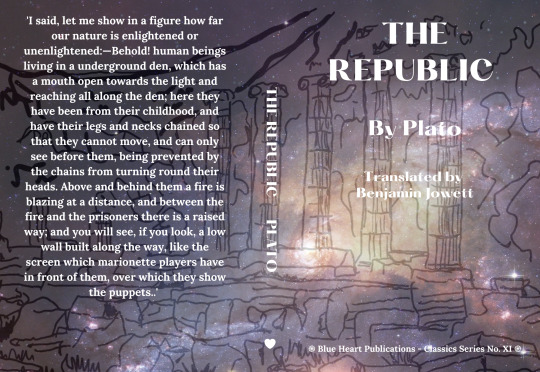
"The Republic," translated by Benjamin Jowett, stands as a timeless cornerstone in the philosophical canon, an intellectual odyssey that navigates the intricate landscapes of justice, politics, and the philosopher's pursuit of truth. Penned by Plato in the 4th century BCE, this Socratic dialogue remains a foundational work in political philosophy, ethics, and metaphysics. Jowett's translation, undertaken in the 19th century, preserves the essence of Plato's probing inquiries and dialectical brilliance, allowing readers to engage with the profound ideas that continue to shape the foundations of Western thought.
Plato's magnum opus unfolds as a series of dialogues, primarily led by Socrates, engaging with various interlocutors. The central exploration revolves around the question of justice, which becomes a metaphorical vessel for the examination of the ideal state, the role of individuals within society, and the nature of knowledge itself. The allegory of the cave, the tripartite division of the soul, and the philosopher-king are just a few facets of this multifaceted work that have reverberated through the corridors of academia for centuries.
The dialogue begins with an inquiry into the nature of justice as Socrates engages with characters like Thrasymachus, Glaucon, and Adeimantus. The discourse takes a dramatic turn as Plato introduces the allegory of the cave, an enduring metaphor for the journey from ignorance to enlightenment. This vivid imagery captures the transformative power of education and the philosopher's duty to ascend from the shadows of ignorance into the illuminating realm of true knowledge.
"The Republic" also ventures into the construction of an ideal state, led by philosopher-kings who possess both intellectual acumen and a commitment to the common good. Plato's vision challenges conventional notions of governance and explores the intricacies of a society governed by wisdom rather than mere political expediency. The dialogue delves into the organization of classes, the role of education, and the philosopher's ability to perceive the ultimate Form of the Good.
Benjamin Jowett's translation captures the nuances of Plato's intricate prose while maintaining accessibility for modern readers. His careful rendering of Socratic dialogues preserves the conversational tone and intellectual rigor that characterize the original work. Jowett's translation, though dated, remains widely used and respected, emphasizing the enduring appeal and significance of "The Republic" across generations.
"The Republic" is not merely an exploration of political theory; it is a profound meditation on the human condition. Plato's insights into the nature of knowledge, the complexities of justice, and the philosopher's role in society transcend the historical and cultural contexts in which they were conceived. The work prompts readers to question the foundations of their beliefs, to examine the societal structures they inhabit, and to consider the eternal pursuit of wisdom as a guiding principle.
In conclusion, "The Republic" by Plato, in Benjamin Jowett's translation, is a philosophical masterpiece that continues to shape the intellectual landscape. Its profound inquiries into justice, governance, and the nature of reality invite readers to embark on a philosophical journey that transcends time. The enduring relevance of Plato's ideas, coupled with Jowett's insightful translation, ensures that "The Republic" remains an indispensable text for anyone seeking a deeper understanding of the complexities of human existence and the perennial quest for a just society.
Plato's "The Republic" is available in Amazon in paperback 16.99$ and hardcover 24.99$ editions.
Number of pages: 471
Language: English
Rating: 10/10
Link of the book!
Review By: King's Cat
#Plato#The Republic#Socratic dialogue#Benjamin Jowett#Political philosophy#Ethics#Metaphysics#Ideal state#Justice#Knowledge#Allegory of the cave#Tripartite division of the soul#Philosopher-king#Thrasymachus#Glaucon#Adeimantus#Education#Allegory#Ideal society#Common good#Organization of classes#Form of the Good#Intellectual acumen#Political expediency#Conversational tone#Intellectual rigor#Human condition#Philosophical journey#Wisdom#Historical context
3 notes
·
View notes
Text
The Republic of Plato: A Philosophical Odyssey
Sfetcu, Nicolae (2024), The Republic of Plato: A Philosophical Odyssey, Cunoașterea Științifică, 3:1, xxx,
Abstract
The Republic, written by the ancient Greek philosopher Plato, is a timeless masterpiece of political philosophy and ethics. Composed around 380 BCE, this influential work presents a comprehensive vision of an ideal society and explores fundamental questions about justice,…
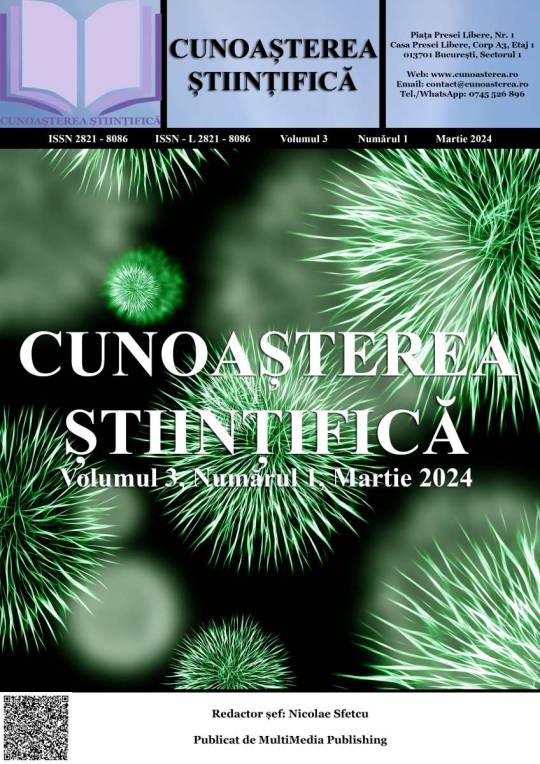
View On WordPress
0 notes
Text
"The Republic: Plato's Timeless Exploration of Justice, Politics, and the Philosopher's Quest"
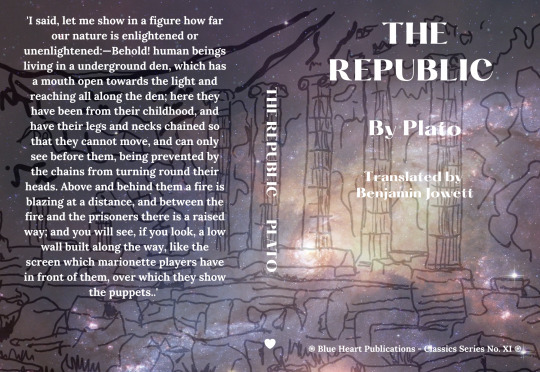
"The Republic," translated by Benjamin Jowett, stands as a timeless cornerstone in the philosophical canon, an intellectual odyssey that navigates the intricate landscapes of justice, politics, and the philosopher's pursuit of truth. Penned by Plato in the 4th century BCE, this Socratic dialogue remains a foundational work in political philosophy, ethics, and metaphysics. Jowett's translation, undertaken in the 19th century, preserves the essence of Plato's probing inquiries and dialectical brilliance, allowing readers to engage with the profound ideas that continue to shape the foundations of Western thought.
Plato's magnum opus unfolds as a series of dialogues, primarily led by Socrates, engaging with various interlocutors. The central exploration revolves around the question of justice, which becomes a metaphorical vessel for the examination of the ideal state, the role of individuals within society, and the nature of knowledge itself. The allegory of the cave, the tripartite division of the soul, and the philosopher-king are just a few facets of this multifaceted work that have reverberated through the corridors of academia for centuries.
The dialogue begins with an inquiry into the nature of justice as Socrates engages with characters like Thrasymachus, Glaucon, and Adeimantus. The discourse takes a dramatic turn as Plato introduces the allegory of the cave, an enduring metaphor for the journey from ignorance to enlightenment. This vivid imagery captures the transformative power of education and the philosopher's duty to ascend from the shadows of ignorance into the illuminating realm of true knowledge.
"The Republic" also ventures into the construction of an ideal state, led by philosopher-kings who possess both intellectual acumen and a commitment to the common good. Plato's vision challenges conventional notions of governance and explores the intricacies of a society governed by wisdom rather than mere political expediency. The dialogue delves into the organization of classes, the role of education, and the philosopher's ability to perceive the ultimate Form of the Good.
Benjamin Jowett's translation captures the nuances of Plato's intricate prose while maintaining accessibility for modern readers. His careful rendering of Socratic dialogues preserves the conversational tone and intellectual rigor that characterize the original work. Jowett's translation, though dated, remains widely used and respected, emphasizing the enduring appeal and significance of "The Republic" across generations.
"The Republic" is not merely an exploration of political theory; it is a profound meditation on the human condition. Plato's insights into the nature of knowledge, the complexities of justice, and the philosopher's role in society transcend the historical and cultural contexts in which they were conceived. The work prompts readers to question the foundations of their beliefs, to examine the societal structures they inhabit, and to consider the eternal pursuit of wisdom as a guiding principle.
In conclusion, "The Republic" by Plato, in Benjamin Jowett's translation, is a philosophical masterpiece that continues to shape the intellectual landscape. Its profound inquiries into justice, governance, and the nature of reality invite readers to embark on a philosophical journey that transcends time. The enduring relevance of Plato's ideas, coupled with Jowett's insightful translation, ensures that "The Republic" remains an indispensable text for anyone seeking a deeper understanding of the complexities of human existence and the perennial quest for a just society.
Plato's "The Republic" is available in Amazon in paperback 16.99$ and hardcover 24.99$ editions.
Number of pages: 471
Language: English
Rating: 10/10
Link of the book!
Review By: King's Cat
#Plato#The Republic#Socratic dialogue#Benjamin Jowett#Political philosophy#Ethics#Metaphysics#Ideal state#Justice#Knowledge#Allegory of the cave#Tripartite division of the soul#Philosopher-king#Thrasymachus#Glaucon#Adeimantus#Education#Allegory#Ideal society#Common good#Organization of classes#Form of the Good#Intellectual acumen#Political expediency#Conversational tone#Intellectual rigor#Human condition#Philosophical journey#Wisdom#Historical context
0 notes
Text

"You could die right now. Let this fact guide the rest of your life."
Marcus Aurelius Antoninus was Roman emperor from 161 to 180 AD and a Stoic philosopher.
#Roman Emperor#Stoicism#Meditations#Philosopher-King#Stoic Philosophy#Roman History#Wisdom#Leadership#Pax Romana#Classical Philosophy#Roman Leadership#Virtue Ethics#Emperor of Rome#Ancient Rome#Stoic Principles#Philosophy of Life#Aurelian Ethics#Imperial Rome#Roman Stoic#Stoic Virtues#quoteoftheday#today on tumblr
1 note
·
View note
Text
A castle mysteriously appears in Gotham one night.
Nobody who noticed it knows where it came from, nor how it got there as it seemingly appeared overnight. It wasn't anything big, as far as castle's were concerned, it seemed to be on the smaller side of things.
However, no one could truly estimate it's actual size. For there seemed to be an ever-present fog that never seemed to stray past the castle's gates.
Just like the fog, you always seemed to hear the cawing of crows and the flapping of bats whenever you step close enough. Yet their visibility was kept hidden in the fog.
Appearances aside, there did seem to be something... off, about the castle and not just because it appeared from thin air, no. It seemed to have a distinct aura of something... other.
No one knew how to explain it, but they could tell there was nothing natural about it. There was something fundamentally wrong with the castle, it wasn't the way it appeared out of nowhere, nor it's appearance.
===
When Sam finally became an adult, she didn't have to think twice about moving out. It was a bit difficult, with her parents not wanting to let her go just yet, but her grandmother managed to persuade them, thankfully.
When she was younger, Sam had always dreamed of owning a castle. Though its appearance did change in her mind when she grew older, from pretty and pink to one of darker colors and crows, which is why she never got one when she was younger, she realized.
But now that she was an adult, what was stopping her?
Nothing, that's what.
So, Sam buys one that matches her tastes and moves in. There was a lot of space, far more than she really ever thought about and now had to find a use for.
Magic.
Was something that enthralled Sam ever since she was young, that and the occult as a whole. So, for a few months after moving did she try and get her hands on things like magical tomes, items, scripts and learn it.
Surprisingly, she was strongly successful in her attempts of learning magic. It was surprising to be sure, but now that she compares it to the portal to the afterlife, having a half dead friend and having hunted down ghosts, she realizes that magic wouldn't be that much farfetched in the equation.
A fair bit of her time now was spent covering her castle in wards, sigils, and runes, ones that would strengthen themselves over time, various protection wards and multiple others that she found useful. Most of them were ones that she found through text, though others were ones she personally made.
After she finished the entirety of the castle, she studied thoroughly to gain more knowledge and power for herself, she even made a few spells of her own along with various potions. Unfortunately, she was interrupted in her studies by various other witches, because apparently having such a powerful fledgling witch on her lonesome was too tempting of an offer to pass up for the nearby covens.
So she had to... move, before they tried to force her to join them. As for how, well, she moved her entire castle! What better way to refuse, really?
Unfortunately, it was her first time using such large-scale teleportation magic and she messed it up. Not that her calculations on where the castle was supposed to be were wrong, but while in the midst of moving through space she was... thrown off kilter.
She didn't even know how or what caused her to mess up. But her castle both was and wasn't where she wanted it to be. Her original destination was coordinates near Amity Park, and while they were on said coordinates.
This wasn't Amity Park.
To say she worried was an understatement. She scrambled to find something about where she ended up, and realized not only was she thrown off kilter, but she was also thrown off so badly that she ended up in an entirely different dimension. Luckily, she managed to make the philosopher's stone.
To say making it was easy would be wrong, for even she didn't know how she created it. It was by accident and for a while she didn't even know she had made it, when she had and tried to do something with it the stone had, uh, well.
It fused into her skin.
It had placed itself right over her face, on her chest, and it granted her immortality it seemed. Though that wasn't the effect she was currently thankful for no, the effect of making gold would be valuable to her, she wouldn't have the Manson wealth, but she could at the very least sustain herself.
For now, though, she did have her studies to get back to.
#dc x dp#dp x dc#dpxdc#dp x dc crossover#dcxdp#dc x dp crossover#I remembered about my old au somewhere in the Batpham discord#I think it was called Hecate's castle or something?#But that had a hand in this post#Sam is a powerful witch and that attracted the gazes of various covens#So she just took her castle and left#Unfortunately something through off what was otherwise a successful large scale teleportation#And Sam ended up in the DC universe in Gotham#She also made the philosopher's stone but that one was more on accident than anything purposeful#Like she cannot replicate what she did to make it at all#If I see ghost king Danny in this post I will riot.#This is Sam-centric#We don't need that ghost twink in here#Sorry that was mean ily Danny#Not when your ghost king tho downgrade to a prince or non royalty and then we'll talk#AHEM#Anyways#I was thinking of how Sam could be called Hecate here but ahhhh#We'll see about that in the future lol#Wow this is a lot of tags#Anyways I shall stop now
968 notes
·
View notes
Text
"What's a Zen?" he said.
The Fool's bells tinkled as he sorted through his cards. Without thinking, he said: "Oh, a sub-sect of the Turnwise Klatch philosophical system of Sumtin, noted for its simple austerity and the offer of personal tranquillity and wholeness achieved through meditation and breathing techniques; an interesting aspect is the asking of apparently nonsensical questions in order to widen the doors of perception."
"How's that again?" said the cook suspiciously. [...]
The Fool hesitated with a card in his hand, suppressed his panic and thought quickly.
"I'faith, nuncle," he squeaked, "thou't more full of questions than a martlebury is of mizzensails."
The cook relaxed.
Terry Pratchett, Wyrd Sisters
#king verence ii#wyrd sisters#discworld#terry pratchett#court jester#in disguise#philosophy#zen#questions#meditation#jokes#expectations#suspicion#the philosophical system of sumtin#apparently nonsensical questions#mizzensails
141 notes
·
View notes
Text

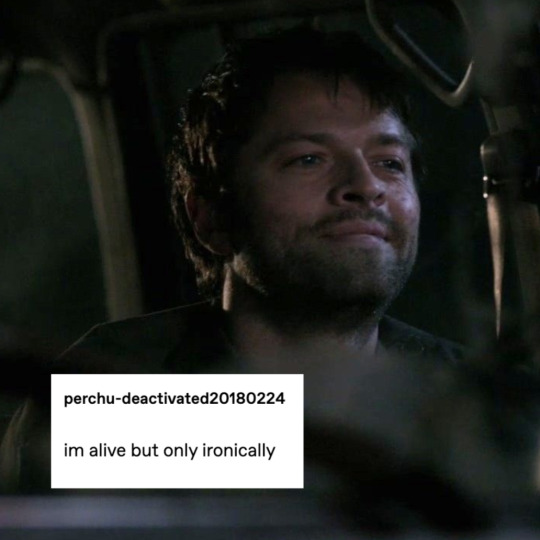


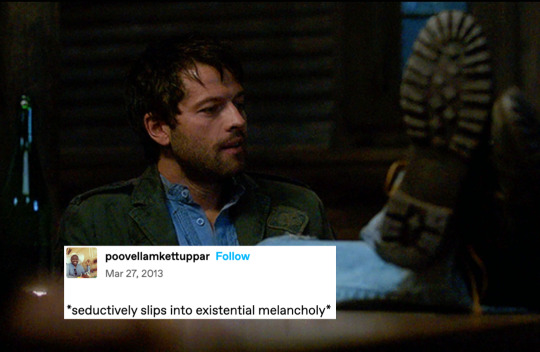

Endverse destiel, my beloved.
#endverse!cas#my philosopher king#endverse!dean#has a whole lot on his plate#destiel#destiel text post#destiel crack#dean winchester#castiel#i had no tumblr for 4 days and this is what happened
223 notes
·
View notes
Text
I was scrolling in tiktok through ron and harry hashtag bc I've missed them and I'm just so mad. I saw people in the comments saying that they don't like ron because he is selfish and doesn't care about Harry's trauma or he is always jealous of Harry and I'm like wtf. Like Ron is so sweet and he cares so much about Harry. He didn't want him to live in that horrible house so he always invited him to his house and never took no as an answer. He even flew a car to get him out of there. He hasn't ever been jealous of him, not for money and not for fame. In gof he was mad at Harry because he thought he didn't trust him enough to tell him he put his name in the goblet and he was sad he did it without him. In ofp he defends Harry and he tries to distract him from the gossip about him. He didn't even know that harry was in love with Ginny but still when they kissed he wasn't mad at Harry. He was shocked and ofc he didn't like seeing them snogging but he smiled when Harry and Ginny kissed for the first time even though his worst fear was to be second to his siblings. Harry was his friend. He was the first person to notice him and value him for who he is and not for who his brothers are. He could have been mad at Harry but he wasn't. He was glad that they were happy together so he ignored his insecurities. That is the exact opposite of being selfish. Besides he never left Harry's side. He always helped him and even when everybody hated him he still supported him.
Ron was the best friend Harry could have picked and I hate people that say otherwise
#harry potter#harry and ron#ron weasley#harry potter books#goblet of fire#sorcerers stone#philosopher's stone#chamber of secrets#prisoner of azkaban#order of the phoenix#halfblood prince#deathly hallows#harry potter and ron Weasley#rarry#ronarry#the weasleys#the potters#molly weasley#arthur weasley#weasley is our king
137 notes
·
View notes
Text
And with that, 2000 years of history and 10+ years of an animated adaption later, Attack on Titan is over.
I wasn't planning on making an essay post about this but like all of my essay posts, it got crazy out of hand, so here we are. I have a lot to say on it and the more I wrote, the more I realized exactly what the Attack on Titan finale was about. It's cathartic. It's also kind of a big shitpost but not for the reasons you might think.
Spoilers for the Attack on Titan finale ahead! CW: DISCUSSION OF WAR AND GENOCIDE AHEAD!
Now for anyone who knows what I'm about to talk about (and anyone who follows my stuff here), I'm sure you're wondering , what side do I fall on in regards to Attack on Titan's ending? Am I about to talk shit about it? It's very divisive and somewhat inconclusive. It followed the exact ending in the manga which, while expected, was still disappointing to many who had hoped the anime would take some other path.
But I have to ask, could there have been any other way?
Eren committed mass genocide, bordering on extinction of the entire human race. There was no way that he was gonna come out of it redeemed or as a hero, and he knew it. He went straight up Walter White core here and like Walter White, he is not a hero.

The fact that the Marlayans have been constantly going to war with other countries using Eldians as their personal soldiers goes to show that for countries that seek out conquest, there's no target too small or insignificant that can't be marked as an "enemy", and we see that reflected in Eren as well, in his pursuing of "freedom", an ever-moving goalpost that can never truly be satisfied.
The Jaegerists were hellbent on creating a new empire on the bloodshed of Marley - 'an eye for an eye', so to speak.
Nothing was ever going to truly satisfy either 'side' in the conflict of humanity vs. Eldians because such conflicts' origins have been obfuscated in hundreds of years of history, propaganda, and generational trauma that has repeated itself for so long that many don't even know what they're fighting for anymore, aside from one thing - that they don't want to suffer, that they shouldn't have to suffer for the actions of their ancestors, that they want peace and happiness but don't know where to start with taking the first step.
I think people are disappointed in this ending because, let's face it, it's anime, and it's an anime adaption that took years to finish. We always want to see some kind of vindication from stories like these, but I think in having vindication, it ultimately removes the point altogether of what's being said.
As much as we may try to fight it, try to deny it, the course of human history travels in a circle. Conflict will always arise. History is written by the victors, and those victors will be seen as heroes by whichever side they're fighting for regardless of what heinous acts they may have committed to justify their salvation. And after all of that conflict, regardless of the result - time goes on, and new conflicts arise.
But I don't think that means we have to succumb to grief and suffering and that's a point that I'm seeing missed in a lot of the discussion around the finale. There's a very powerful scene between Armin and Zeke, in which Armin talks about how he was born to run up the hill with Mikasa and Eren. He recognizes fully that if his life isn't meant to be long, he can still cherish those small moments that he thinks back on fondly, the moments that defined his life with the people he cared about.
And that's really all life is. Small moments and experiences that stick with us until the end. The very act of being born in and of itself is a cosmic miracle that gives us the chance to experience things that bring us joy and stay with us forever - however short or long that 'forever' may be. We take these small moments for granted when we're comfortable, but we look for them the most when we're suffering.
If I can relate all this to another piece of media that says the same thing - albeit with a much brighter ending - FF XIV: Endwalker also asks a similar question to Attack on Titan - is the only meaning in life to suffer and die? Of course, by its end, we learn that while death and suffering is an inevitable part of life - not something that should be avoided - it shouldn't persuade us to give in to fear and despair as a constant state of being. And I think Attack on Titan goes for a very similar approach, albeit slightly more as a cautionary tale - a nihilistic reminder that ultimately, the losses and victories we find in our current point of history are still just that, a single point, a blip that will be forgotten until it's ultimately repeated, and there's no escaping that.
It cautions us that freedom cannot exist without constant vigilance for war and conflict. It cautions us that our values and core beliefs for attaining freedom, love and happiness can be twisted into a weapon to cause harm, vindication gained at the cost of another. It cautions us that when left in the wrong hands, power can and will be abused by the ignorant while propagandizing itself as "the greater good".
So why not just find the joy that we can? The friendships, the little moments, the things that bring us happiness even if only temporary. Conflict is inevitable, suffering is inevitable, but that doesn't mean life isn't worth living. "Happiness" is not a tangible end point - it's the side effect of living a meaningful life that's true to yourself.
Attack on Titan is over. Some will argue the ending was the only way, others will argue that there could have been another way and that the anime adaption had the chance to change it but still didn't for reasons beyond their comprehension.
But isn't that the whole point? We'll argue. We'll bargain. Many of the arguments made will reinforce our own beliefs further rather than sway us. Many of us will insist there had to be another way, just as Armin insisted that this couldn't have been the only way, that humanity must have had another option. Meanwhile, many of us will acknowledge that at the end of the day, this is the story Isayama wanted to tell, and regardless of whether or not it makes him an idiot toying with his audience and admitting defeat by lampshading it in the penultimate scene of Eren admitting to his own idiocy, this was the power given to him and he used it in the best way he knew how.
Much like in any conflict, there's one thing that unites both sides - the human need for joy, connection, and freedom.
We might not agree on how Attack on Titan ended, but we can agree that it was a hell of a ride, and I hope we can all agree that it was worth riding, even if it wasn't satisfying for everyone in the end. It brought many people together regardless of their backgrounds, experiences, and differences, and connected them through something they all loved for over ten years. And despite how big a part of our lives it was, life will still go on, and we'll move on to other things to watch, enjoy, and argue over. Isayama will move on to whatever awaits him next, knowing fully well that his choice was his own, that he created the series he wanted to create regardless of how people feel about it. We'll all look for our own forms of joy and happiness as life moves on around us, as conflicts come and go.
Isn't that really what freedom is at the end of the day?
#also ok i know this turned into a philosophical post but like#i'm still just talking about fucking anime#so please for the love of god i don't want to be seeing anyone using this post as a way to play devil's advocate on real actual war crimes#human conflict in and of itself is an enigmatic inevitability but blatant actions of genocide and colonization are not#and that was made VERY clear by the end of the series through eldians and marlayans putting aside their differences to take out eren#also ymir being in love with king fritz was a bit of a weird thing to do but that's for another post#i think it spoke more to her just being that desperate for connection that she fell into an abusive relationship#but idk it could have been executed better esp because a lot of the 'romance' in AoT is weird#still i really enjoyed the finale tbh and i don't think we're supposed to be left feeling strictly one way about it#the fact that we're arguing over whether or not the finale was good is literally just proving isayama right ngl LOL#attack on titan#attack on titan finale#attack on titan spoilers#shingeki no kyojin#shingeki no kyojin finale#shingeki no kyojin spoilers#essay post#long post#tw genocide#tw war
96 notes
·
View notes
Text
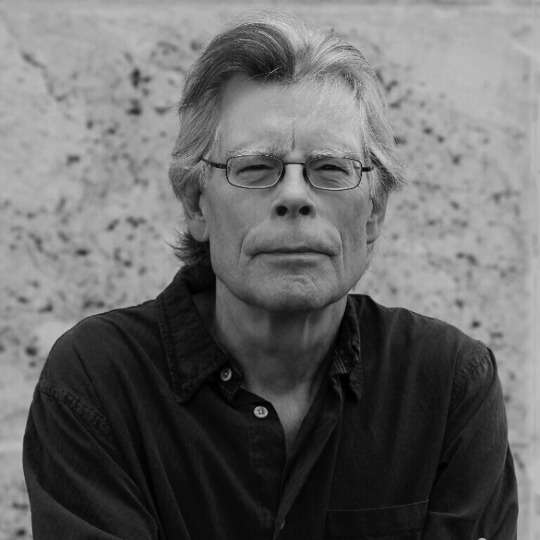
“It always comes down to just two choices. Get busy living, or get busy dying.”
— Stephen King
#stephen king#literature#lit#literature lover#literature quote#literature quotes#english literature#philosophy#philosophical#philosopher#philosophers#philosophy of life#philosophy quote#philosophy quotes#quote#quotes#excerpts#excerpt#quoteoftheday#booklover#book#bookworm#books#booklr#book quotes#book quotations
65 notes
·
View notes
Text
my most bizarre merlin thought (probably) is that I want immortal merlin to befriend a nun at some point
#I'm not even religious#I just think it'd be funny#I've said it before btw#I think he'd have philosophical discussions with religious people#when in the mood#because magic and religion are one and the same to him#listen idk#I'm in sicily visiting churches and monasteries#thinking about norman kings#and this too again. apparently#*
84 notes
·
View notes
Text

my bestie @bluegekk0 bribed me with burger money for this drawing of our shrimps together (real)
#dusky.art#hk pale king#men kissing#pale king#homoerotic amputation#learning to love yourself is a daunting and difficult process especially if you have committed heinous crimes against your kin#also you are divorced#alas. what is a hamster/silverfish hybrid to do?#as famous greek philosopher aristotle once so wisely put it; you must love the dumpster-diving non-fruity version of yourself#before you can begin to love others#can i get an amen 😇🙏
223 notes
·
View notes
Text
Mystery of Asha's dad
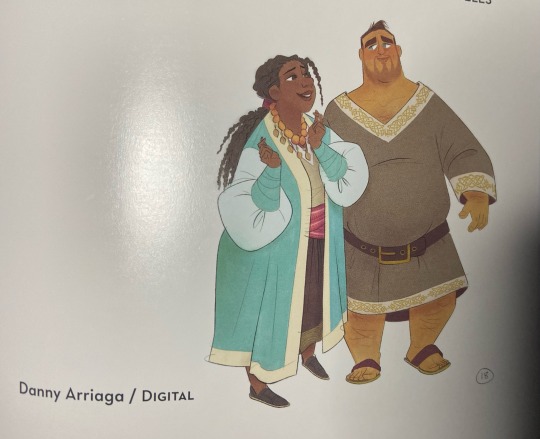
Here are the clues for Asha's dad in the movie. we him one time in the movie.....😤😤😤

🌟 He named Tomas, we know the the name in Wiki in disney.....😤😤 😤 Inpartant Infirmation in the MOVIE!!!
🌟 Tomas knows King magnifico and Queen Amaya.
🌟 Asha's dad helped her to draw to remember be, WE LIKE SEE HIM IS A GOST, CLOUD OR MOST IMPORTANT A STAR
🌟 Tomas is a philosopher
🌟 Asha's dad maybe knows magic??? ✨️
🌟 Tomas & King Magnfico, maybe.... brothers 😮😮😮
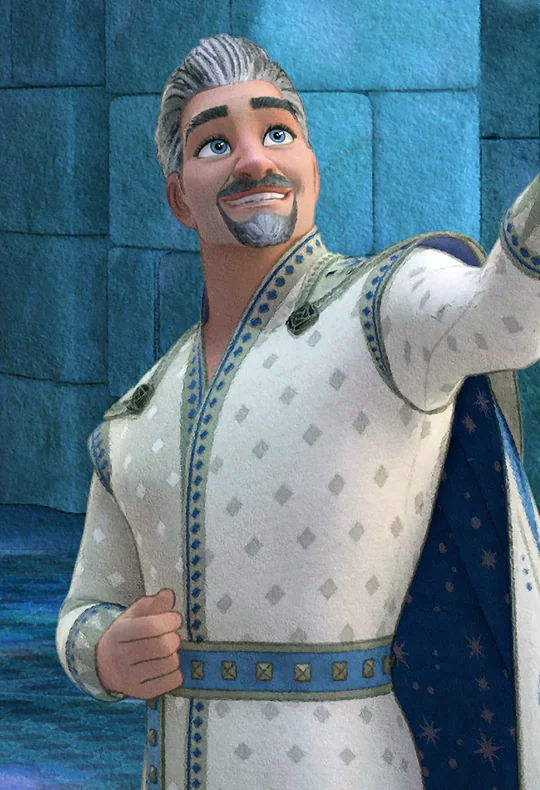

#disney#magic#animations#disneysprincess#princess asha#asha#disneywish#fantasy#concept art#Asha's dad#king magnfico#philosopher#wish 2023
16 notes
·
View notes
Text

Yeah, having a bit of a moment over here.
#nomad of nowhere#skout non#toth non#melinda non#fullmetal alchemist AU#don't think too hard into this it's like half Brotherhood and half what actually happened in NoN#Y'dalan nomad was my favorite theory back in the day and i had to pay homage <3#Melinda fans please come get your food#I feel like making Toth take Ling's role is a controversial decision when Scar is right there. but i think it's more in character at least-#for her in season 1#yes melinda dead again and 100 years later another dumbass made the same mistake#Skout tried to bring back her mom and got off pretty damn easy in comparison#Skout is actually NOT trying to get her old body back. only nomad's#but the king here. while in Bradley's role is more like what we know in NoN but the crown in a philosopher's stone#just. you have to trust me here even though this is a mess#gave melinda and skout braids because of Ed but i didn't want to mess with Melinda's design too much
11 notes
·
View notes
Text
i miss the time when "sweet", "shiny" and "naive" weren't the adjectives frequently used to describe finrod felagund of all elves
#not to be that person#but i miss descriptions of finrod who doesn't even need a crown to feel like a true king in the eyes of other people#finrod who laughs in sauron's face even under torture#finrod the-wisest-of-the-exiles finrod the philosopher finrod the believer#(believer not in ephemeral goodness but in his own well-polished logical system of (moral) convictions he talks about in athrabeth!)#also: kind is NOT synonymous with sweet#tolkien#the silmarillion#finrod
15 notes
·
View notes
Text

They must crash upon the rocks just to learn they’re made of water.
(Wonder Woman #2)
#wonder woman#princess diana#men#water#philosophical#tom king#daniel sampere#dc comics#comics#2020s comics#Wonder Woman: outlaw
13 notes
·
View notes